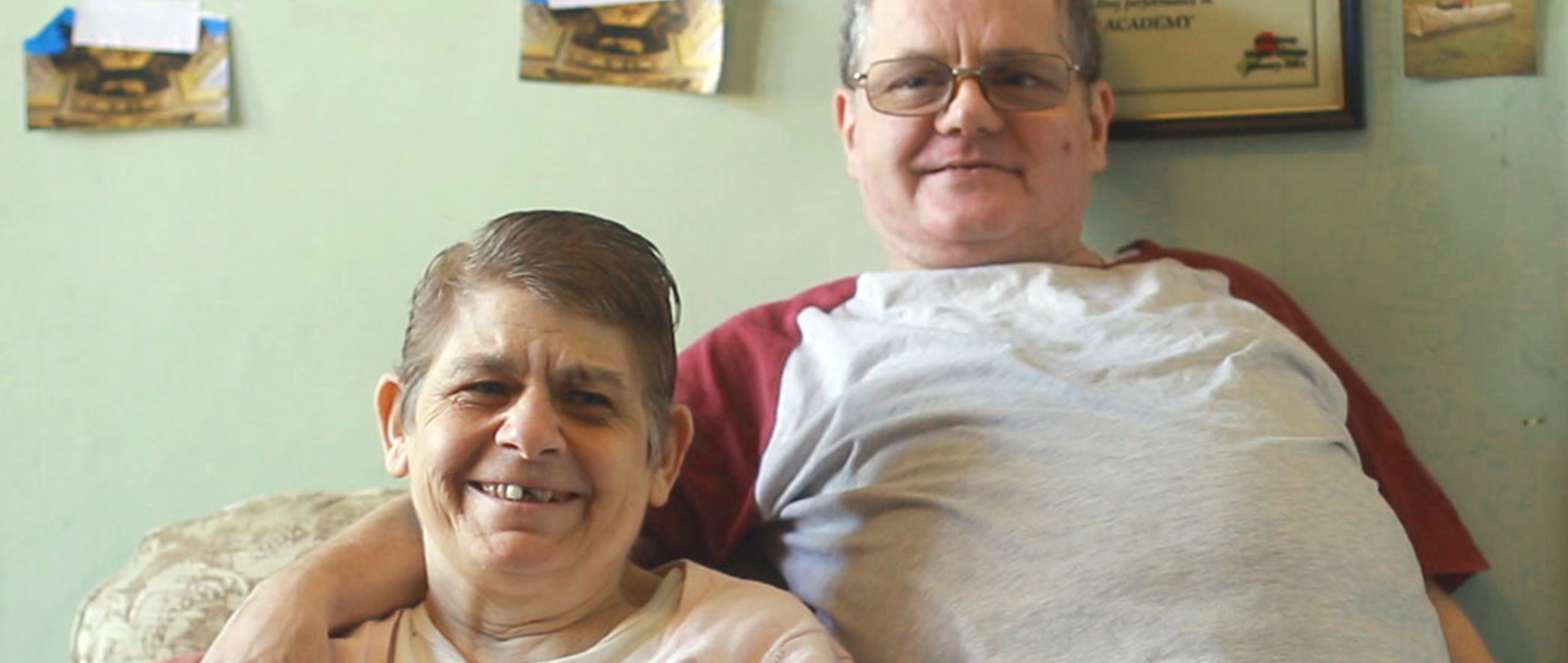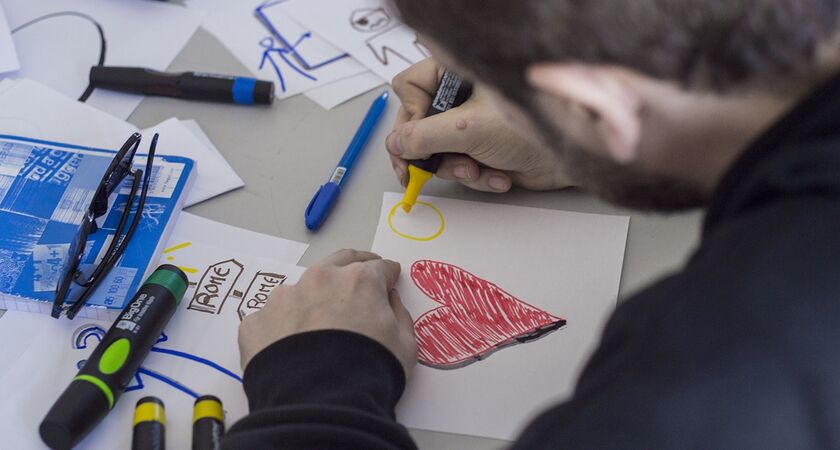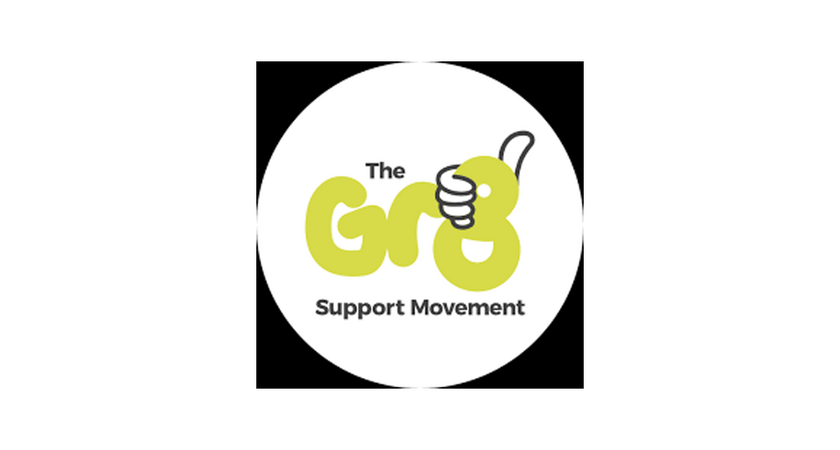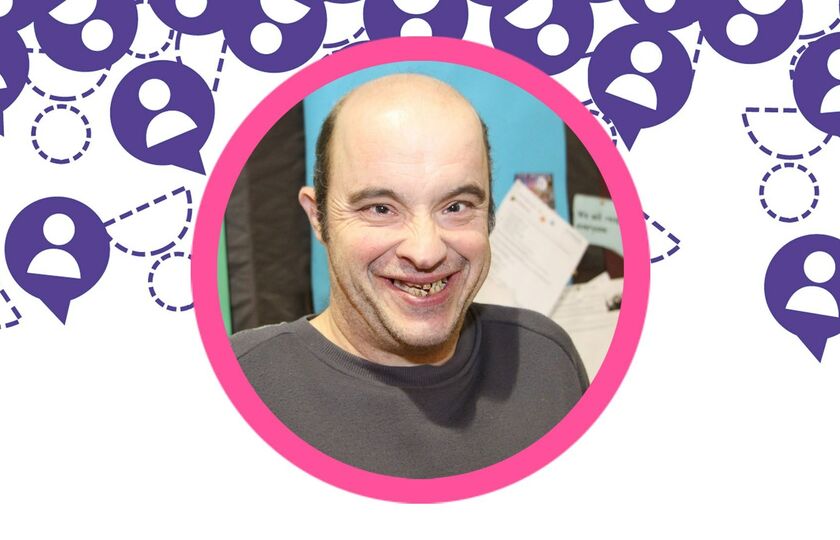The U-Night Group has now developed a similarly formatted pack about relationships, sex, and sexual self-advocacy. The box is jam-packed with interactive resources that you can use to support learning and discussions about relationships and intimacy with self-advocates and staff. Information on how to buy here
Supported Loving toolkit
Supporting relationships

Supported Loving is all about equipping staff to support people to enjoy close and intimate relationships.
Support workers play a crucial role in the lives of many people they support. Alongside friends and family, it’s support workers who encourage people to explore, to discover what a good life is for them, and then to figure out how to live a life they choose.
Many people automatically think support work is supporting people with things like shopping, cooking, managing health and budgeting. In reality the role of support workers is so much more than that. We overlook the role of support workers in supporting people with their loving, at the risk of more and more people living isolated lives in 'service land'. Research shows that people are often isolated and lonely. It’s easy to blame money and lack of resources, but we believe so much more is possible (see Gr8 Support Movement).
Support workers tell us they want to support people fully, but that they often feel restricted and uncertain about their role in supporting people to explore relationships, love and sex. Staff find that their initial training is all focused on health, safety and risk etc. People say they feel limited by the red tape of their organisations, there is little mention of the humanity and the need for relationships and the human desire to be loved and belong. Many supporters say there is little or no training about supporting people to find friends, love, relationships and yes SEX! It’s time for change.
Challenges staff face supporting people in this area:
- Feeling embarrassed to talk about sex and sexuality.
- Not having the knowledge and resources to talk about sex and sexuality.
- Not knowing what the organisational stance is on this eg no clear stand-alone relationships policy. Often these issues are only referred to in safeguarding and risk training. This often leads to staff not responding in a human way, for fear of getting it wrong or getting ‘told off’ for the way they have supported someone eg giving condoms.
- Organisational systems that restrict staff from offering the flexible and truly personal support that is required eg restrictive times of rotas.
- Some people may struggle to express or know what their desires are as they have not been given the space and respect to do so.
- Limited understanding of capacity and consent.
Ideas for supporting staff:
- Staff need well-designed training that address how to have conversations and support people in exploring their sex, sexuality, love and relationships. This is about a group of staff being able to debate and learn together. This cannot be achieved solely by online learning. Ensure that all staff have someone to talk to, so that they can continually grow their knowledge, confidence and improve the support they offer. This is a human, organic process and staff need to be supported throughout it.
- In addition to the above training, ensure that resources are available within your team. You may learn about these resources during training, in the Supported Loving toolkit or the Family Planning Association (FPA) website. It maybe that someone in your team could volunteer to research resources and UK-wide good practice in response to the wishes and needs of the person you are supporting as they are identified. Importantly, the team must support each other to best use the resources.
- Ensure clear guidance is in place to support people with regards to sex, sexuality and relationships. If the only guidance is part of safeguarding and risk training, raise the conversation to create clear relationships policies and guidance around these areas. It is crucial that this guidance gives really clear examples of how best to support people and clear information about where staff can get ongoing advice and support. This must be co-produced and brought to life in the training, as in point 1 above.
- Staff should be encouraged to be brave and address concerns and ideas with their manager, so that they can respond to what is truly needed eg someone wanting to go to a gay night club and the staff shift needing to change. Managers will need to offer supportive, responsive supervision as and when needed.
- Organisations need to offer training on capacity in line with the Mental Capacity Act, so that staff work on the basis of people having capacity and the right to make mistakes.
Watch this film from the Tizard Centre's (University of Kent) Love Project, where researchers spoke to people with learning disabilities and staff about supporting intimate relationships.
Do...
- deeply listen with an open mind and heart, and value what the person is saying/wanting/not wanting. Remember, people can show this in a variety of ways through changed behaviour and non-verbal signals etc.
- be brave! Be brave to ask questions of the person you are supporting and those who know them well (if appropriate) or the organisation you work, eg staff must not hug people – why?
- encourage conversations within your organisations that directly and bravely address what a person’s human needs are with regards to relationships and sex, to respond in a human rather than a cold systematic way.
Don't...
- accept anything that suggests that the people you support don’t have the same desires for touch, love, belonging and relationships, like anyone else.
- put across your own values or feelings of embarrassment or discomfort when in conversation with people you support around sex and sexuality. Instead create a safe space for people to explore the conversation they need. If you can’t do this, find a colleague who can.
- accept the rules, the guidance or policies of any system if they don’t value the human rights of a person. Find a way to challenge or have a conversation about how to move things forward.
Case study
"I feel like I’m tied up in red tape and I don’t know what I’m allowed to say."
"I’ve never really thought about people with learning disabilities in relation to sex. That’s a bit shocking isn’t it!"
These were the comments that we heard from staff as we, Paradigm, began to work with an organisation who had commissioned us, in response to a request from people they support, to explore with staff and self-advocates the subject of sex, love and relationships.
Working together with staff and self-advocates, eight sessions were facilitated to explore everything from how to make friends, dating, developing intimate relationships, the fun of sex, sexual positions, how to say no, how to finish a relationship and coping with a broken heart.
What made the sessions so powerful was that staff and people with learning disabilities were together in their learning. The skilled facilitation created space for openness and honesty with a breakdown of the ‘them’ and ‘us’ and a coming together as human beings.
A real strength was that at the end of each session, the facilitating team (which included a person with a learning disability) met to develop the next session in response to the day’s learning and experiences. It was a very organic, brave, responsive and honest process.
In this short film, created at the end of the course, you can hear some messages from participants: Thinking about love, sex, emotions and relationships
Sally Warren, Paradigm
Find out more about Paradigm
The views expressed in the Supported Loving toolkit are not necessarily those of Choice Support.
Resources
Relationships Really Matter
Boyfriends & Girlfriends: A Guide to Dating for People with Disabilities
Terri Couwenhoven book written expressly for teens and adults with learning disabilities explains the do's and don'ts of dating. Buy it here
Relationships Decoded - Developing healthy and safe relationships
A curriculum from Relationships Decoded in USA designed to teach people with learning disabilities and autistic people how to develop healthy and safe relationships while also giving them information about sexual abuse and coercion. The curriculum supports the use of evidence based practices
All about relationships - An easy read guide
A easy-read guide to relationships for people with learning disabilities from People First Merseyside
Tips for coping when someone ends a relationship
Click here to watch the film.
Choosing my friends and relationships
Click here to watch the film.
Tips for finishing a relationship
Click here to watch the film.
Would Like to Meet (2014 Film)
A powerful short film made by Gloucestershire Voices (now Inclusion Gloucestershire)
Click here to watch the film.
Easy Read Guide to Relationships - Healthy Suffolk
Created by Healthy Suffolk see this easy read guide on healthy and unhealthy relationships







